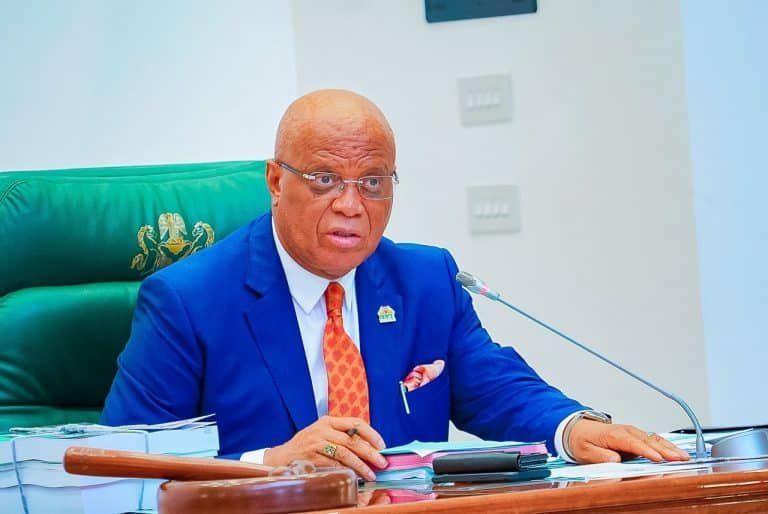Ahead of the 2027 general election, stakeholders in the electoral process, have called on Nigerians to be on the alert and resist attempts by politicians to hijack the Independent National Electoral Commission (INEC) with the aim of manipulating the outcome of the polls.
They noted that in the next coming months, some national and resident electoral commissioners as well as the current INEC chairman, Professor Mahmood Yakubu would finish their tenure and politicians have already started plans to replace them with loyal members of their political parties.
The stakeholders spoke at a high-level conference of ‘thought leaders on civic space, poverty and elections in Nigeria’, organised by the African Centre for Leadership, Strategy and Development (Centre LSD) in partnership with Women’s Rights Advancement and Protection Alternative (WRAPA) in Abuja yesterday.
In his keynote address, a professor of Political Science at the University of Lagos and a former Commissioner in the National Election Commission (NEC), Adele Jinadu, said as part of state capture and control of the electoral body, the ruling class are making plans to appoint their partisan supporters into INEC.
“I am saying this now, because I can see clearly attempts to invade INEC. You don’t want to say it, forgive me but those of us who have our ears on the ground, we know that process is going on now, and we have seen images of it already. When party members were nominated as RECs and within one day, they were all confirmed because of the compliant National Assembly.
“Pressures are being mounted so that the process for registering new parties will be used against those who want to start to use them to form a new government. I think the role of the civil society is very important.
There have to be a lot of vigorous resistance against that kind of thing.
“In the next six months, by November, the present leadership of INEC will have to step aside.
I think we need to be vigilant and prevent that from happening because if you look at our history, the 1964-65 federal elections put us on the precipice because there was a deliberate attempt to tamper with and influence the federal electoral commissioner at the time to the extent that three or four members of the NEC had to resign.
“We also know that in 1983, FEDECO was also deeply embedded in it and there was a disagreement about the name of FEDECO. So what I’m simply saying is that we should avoid a situation where we put partisan politicians on the INEC,” he said.
Similarly, another professor of Political Science and former director of the Centre for Democracy and Development, Jibrin Ibrahim, urged Nigerians to resist any attempt to steal their votes in the 2027 general election.
“The first solution, as I said, is that we as Nigerians must mobilise ourselves to prevent our votes from being stolen and that can be done. That is my primary emphasis.
“If we keep on appealing to them, they will just be laughing at us. We will pass a law, we will change the Constitution, but they will still keep behaving the way they are behaving. So the first primary concern for me is that Nigerians must stand up and be counted as we move towards 2027.”
In his welcome address, the executive director of the African Centre for Leadership, Strategy & Development (Centre LSD), Monday Osasah, said the aim of the conference was to enhance democratic governance, social protection, and electoral integrity in the country.
“We believe that by working together, we can build a more inclusive, transparent, and accountable democracy that truly serves the needs of all Nigerians.
This project is timely, given the current state of our democracy.
“We have seen the constriction of civic space, widespread poverty, and electoral malpractices that hinder our nation’s development. However, we also see opportunities for reform and positive change,” he said.
On her part, the secretary general of WRAPA, Saudatu Mahdi, said when elections lack integrity, it is the hopes of the marginalised, especially women, youth, persons with disability and other vulnerable groups that pay the highest price.
“Against this backdrop, WRAPA is proud to join forces with the African Centre for Leadership, Strategy & Development (Centre LSD), with the invaluable support of the MacArthur Foundation, to host this critical conference,” she said.
In his presentation, the advocacy officer, West Africa Democracy Solidarity Network, Austin Aigbe said the process of appointing the INEC leadership will define the trajectory of the entire electoral landscape, adding that concerns about transparency, neutrality, and potential political influence dominate discussions.
Aigbe observed that the appointment process is frequently marred by political influence that undermines the commission’s independence and erodes public trust, hence it always elicits criticisms.
He proposed the establishment of an independent body responsible for the appointment of the INEC leadership to ensure impartiality, enhancing public trust, adding that several democracies around the world employ independent bodies for the appointment of electoral officials; ensuring electoral integrity and fostering public trust in the democratic process.
“With Prof. Yakubu’s tenure concluding this year, after serving two terms in office – no longer due for reappointment, the contentious discourse surrounding the appointment of a successor has reignited fervent demands for comprehensive electoral reforms that ensure a credible, inclusive and effective electoral process.
“Nigeria stands at a critical juncture that calls for urgent reforms in the selection process of the leadership of the Independent National Electoral Commission (INEC). Ensuring this process is more independent and effective is paramount for restoring public trust,” Aigbe added.
We’ve got the edge. Get real-time reports, breaking scoops, and exclusive angles delivered straight to your phone. Don’t settle for stale news. Join LEADERSHIP NEWS on WhatsApp for 24/7 updates →









